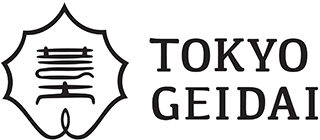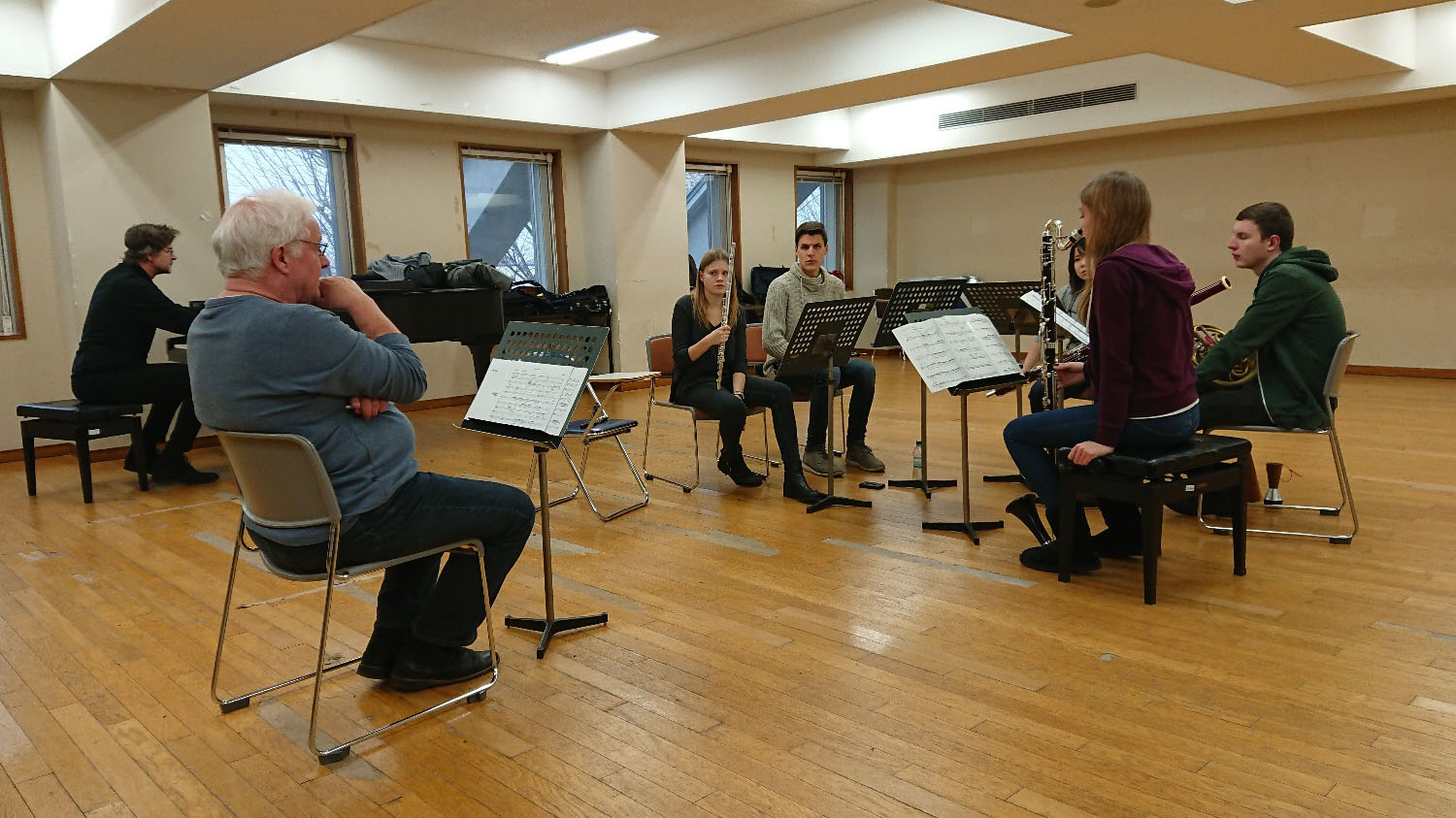リューベック音楽大学マック教授の招へい及び作曲科・器楽科の交流事業An exchange project in the composition and instrumental music departments with Professor Dieter Mack from the Lübeck University of Music
December 10, 2018
平成30年1月5日から1月12日にかけて、交流協定校であるリューベック音楽大学(ドイツ)と本学作曲科および器楽科の交流事業として、リューベック音楽大学ディータ・マック教授(作曲科、副学長)をお招きしました。
本事業は、東南アジア音楽の研究家としても活動をしており、2つの異なる文化の交流についても造詣が深いマック教授の指導のもと、両校(東京藝大・リューベック音大)作曲科学生から課題として作曲された木管5重奏のための作品を軸に、作品が生まれる場で、実践的な作曲技術を学ぶことを狙いとして行われました。また、学生による木管五重奏が両学より参加し、木管五重奏および十重奏の交流演奏を行ったほか、マック教授および本学作曲専攻の大学院生田中翔一朗さんの新作も発表されました。
楽理科、作曲科を対象としたマック教授の講義は『インドネシアの現代音楽』と題され、インドネシアのガムラン音楽を専門とする同教授が、インドネシアにおける現代音楽を多くの音源を用いて、伝統音楽と伝統的コミュティがどのように現代音楽と関わるかを紹介しました。参加者からはさまざまな質問が寄せられ、当地の教育カリキュラムにまで話が言及されるほどの盛り上がりを見せました。また、楽理・作曲両科の学生及び教員とも活発な意見交換が行われました。
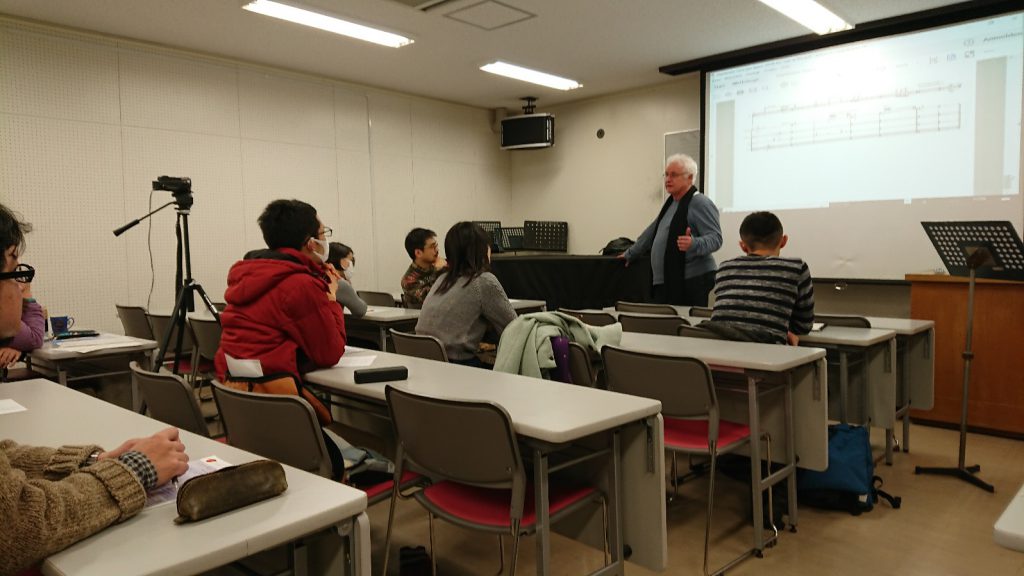
マック教授には、本事業期間を通し、木管五重奏および十重奏の指導をいただき、木管五重奏の新曲に関しても、本学大学院生の作品のリハーサルに立ち会った上で、教授の経験を活かしたアドヴァイスをいただき、作品および演奏に反映させることができました。作曲専生のみならず、管楽器専攻生にとっても、作品の生まれるコンセプトと過程を共に体験することで、他の楽曲に取り組む際に応用できる体験を得ることができたと思います。また、12日に第2ホール行われた2部構成の交流演奏会には、70名近い入場者を得て、成功裡に終えることができました。
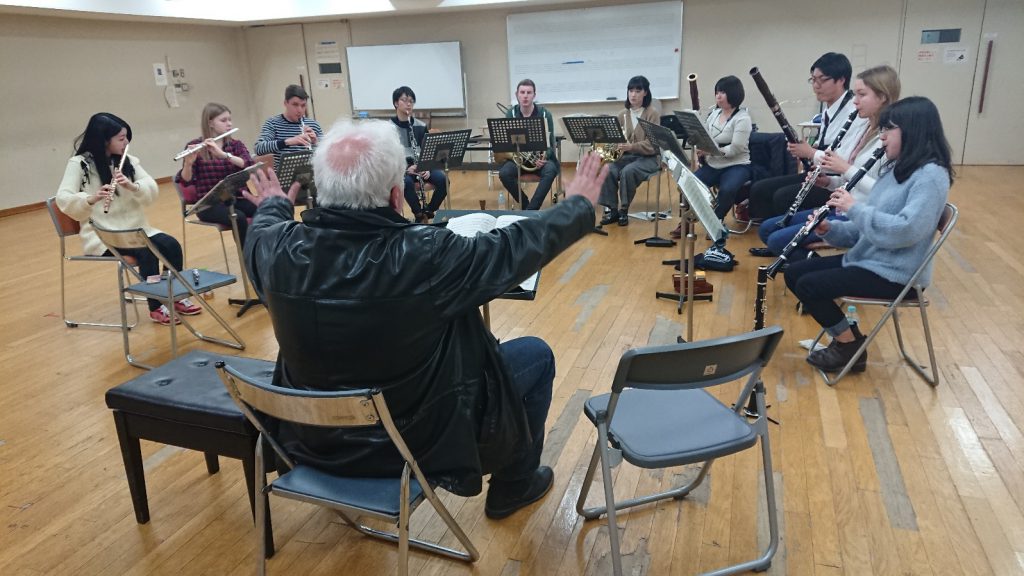
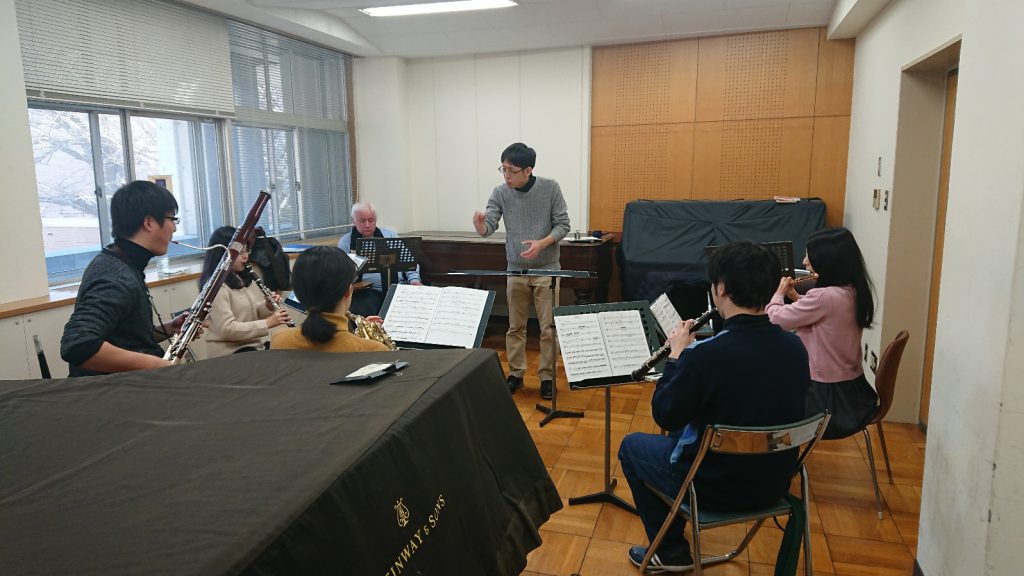
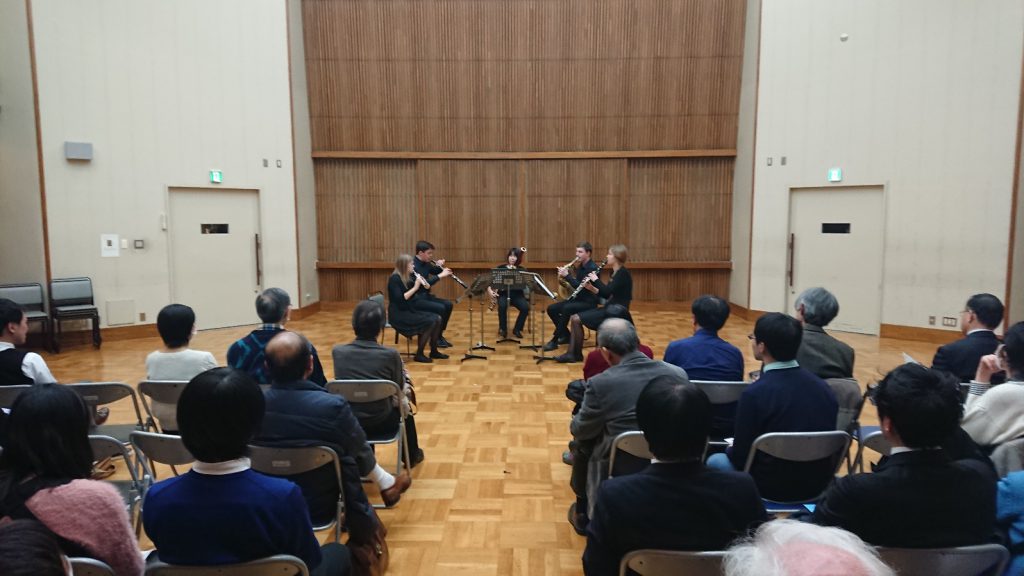
今回、本学からは管楽器および作曲科の教員も本事業に参加し、両校の管楽器専攻学生、作曲科学生にとっての国際文化交流のみならず、管楽と作曲という二つの異なった専攻科間の交流を作り出すことができました。本事業を通して、本学とリューベック音楽大学との関係がより深まったことを確信しており、今後ますます学生が広い国際的視野をもって研究活動に臨んでゆくことを期待しています。
なお、本事業は、ドイツ共和国大使館の後援を得て行われましたことをここに追記します。本事業のためにご尽力いただいた関係者の皆様に心よりお礼を申し上げます。
From January 5 to 12, 2018, Departments of Composition and Instrumental Music, Faculty of Music, Tokyo University of the Arts (Tokyo Geidai) implemented an international exchange program with the Lübeck University of Music, one of the partner institutions to Faculty of Music, during which Professor Dieter Mack, a composing professor at the German University was invited.
Professor Mack, who is also a researcher of music in Southeast Asia, has a deep knowledge of cultural exchange between two different cultures. Under his direction, this project aimed to provide practical training for student composers through an opportunity where new pieces of music were created, using the assignment pieces for a woodwind quintet composed by composing students of Tokyo Geidai and the Lübeck University of Music.
A woodwind quintet by students of both institutions performed ensemble pieces. New pieces by Professor Mack and the graduate student Shoichiro Tanaka were also performed for the first time.
In the lecture for musicology and composing students titled “contemporary music of Indonesia”, Professor Mack, who specializes in Indonesian gamelan music, demonstrated using different music sources how traditional music and communities engage in contemporary music. The lecture was very successful, and the participants asked a variety of questions and discussed various topics, including the education programs of gamelan in Indonesia. Both the students and teaching members of the composing and musicology departments actively exchanged opinions.

Professor Mack taught woodwind quintet and double quintet performances throughout his stay at Tokyo Geidai. He also witnessed the rehearsal of the performance of the new quartet piece by Mr. Tanaka and provided advice based on his experience, which was utilized for the improvement of the piece and its performance. Not only the composing students but also the chamber music students gained an experience that can be applied when they work on other forms of music, by actually experiencing the process of composing a new piece including the development of the concept. On January 12, a concert that had two parts was held at No.2 Hall. It ended successfully, attended by approximately 70 people.



The involvement of faculty members and students in the composing and wind instrument departments made this project serve as an opportunity of international exchange for the students of the two institutions but also that of collaboration by the two different fields of studies; chamber music and composition. We are sure that the relationship between the two institutions has deepened through this project. We expect that our students will be engaged in research activities with more global perspectives.
We would like to express our gratitude to the Germany Embassy in Japan for its support to this project. Our appreciation also goes to all the people who worked for the realization of the project.
